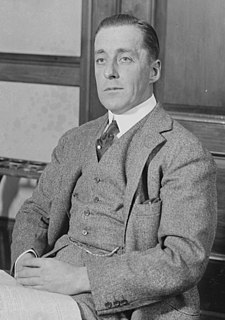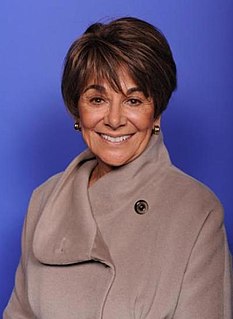A Quote by Leonard Read
It [the free market] is an organizational way of doing things, featuring openness, which enables millions of people to cooperate and compete without demanding a preliminary clearance of pedigree, nationality, color, race, religion, or wealth. It demands only that each person abide by voluntary principles, that is, by fair play. The free market means willing exchange; it is impersonal justice in the economic sphere and excludes coercion, plunder, theft, protectionism, and other anti-free market ways by which goods and services change hands.
Quote Topics
Abide
Anti
Change
Clearance
Coercion
Color
Compete
Cooperate
Demanding
Demands
Doing
Each
Economic
Enables
Exchange
Fair
Fair Play
Free
Free Market
Goods
Goods And Services
Hands
Impersonal
Justice
Market
Means
Millions
Millions Of People
Nationality
Only
Openness
Organizational
Other
Pedigree
People
Person
Play
Plunder
Preliminary
Principles
Protectionism
Race
Religion
Services
Sphere
Theft
Things
Voluntary
Way
Ways
Wealth
Which
Willing
Without
Related Quotes
I have read a great deal of economic theory for over 50 years now, but have found only one economic "law" to which I can find NO exceptions: Where the State prevents a free market, by banning any form of goods or services, consumer demand will create a black market for those goods or services, at vastly higher prices. Can YOU think of a single exception to this law?
My father always said 'There's no free lunch.' My father was right. There's no free lunch and there's no free market. The market is rigged, the market is always rigged, and the rigging is in favour of the people who run the market. That's what the market is. It's a bent casino. The house always wins.
A free culture supports and protects creators and innovators. It does this directly by granting intellectual property rights. But it does so indirectly by limiting the reach of those rights, to guarantee that follow-on creators and innovators remain as free as possible from the control of the past. A free culture is not a culture without property, just as a free market is not a market in which everything is free. The opposite of a free culture is a "permission culture" -- a culture in which creators get to create only with the permission of the powerful, or of creators from the past.
We must continue to liberalise the single market, cut red tape and basically create a digital single market. We have not completed the single market yet, there is not sufficient free movement of goods, labour, services and money. We have to keep on working at that against all the protectionist tendencies that we have right now.
The essence and the glory of the free market is that individual firms and businesses, competing on the market, provide an ever-changing orchestration of efficient and progressive goods and services: continually improving products and markets, advancing technology, cutting costs, and meeting changing consumer demands as swiftly and as efficiently as possible.
If business is going to continue to sell through the decades, it must also promote an understanding of what made those products possible, what is necessary to a free market, and what our free market means to the individual liberty of each of us, to be certain that the freedoms under which this nation was born and brought to this point shall endure in the future ... for America is the product of our freedoms.































